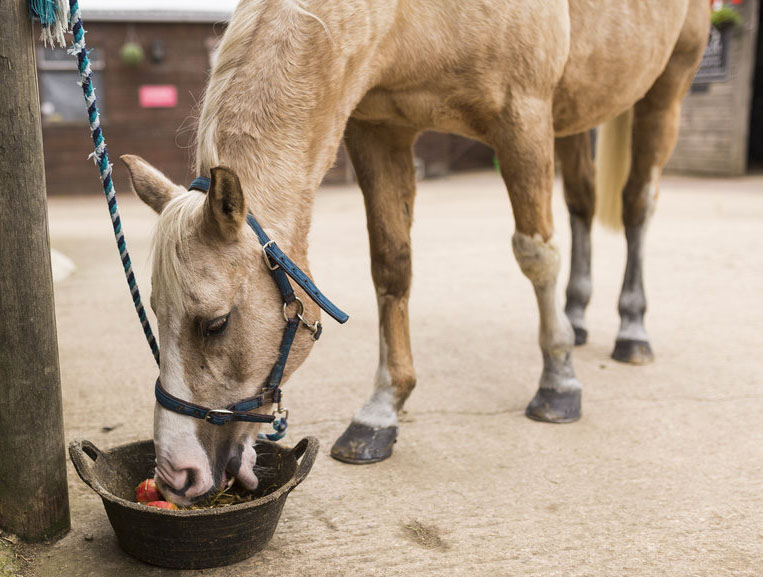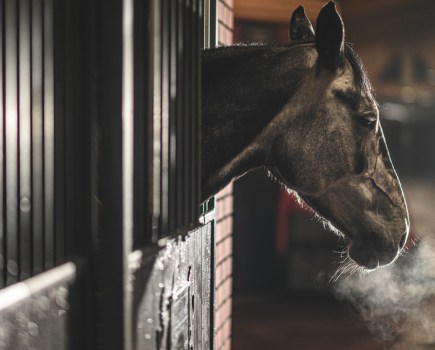Elderly horses can always do with an extra bit of TLC, particularly when the temperature drops during the colder months. Vet Nicky Jarvis shares her tips on top veteran vitality.
1. Do weekly checks on his condition
“If you have an older horse, you should be doing regular body conditioning and score checks,” says Nicky. “The faster you pick up on any drop in his condition, the better. Every day you should be bringing him in from the field, taking his rug off, grooming him and watching him walk across a firm surface to check that he’s sound.”
2. Check his teeth
“Older horses often have gaps form in between their teeth, which makes it easier for food to get wedged in,” says Nicky. “Grinding hay also becomes harder as their enamel ridges wear down and the surfaces of the teeth become smooth.”
If you’re unsure about the state of your horse’s teeth then book an appointment with your vet or qualified equine dental technician.
3. Work in more fibre
“You should be feeding your older horse hay for as long as he can manage it,” says Nicky. “However, if he’s struggling to chew it, that puts him at risk of choke or colic and you need to get fibre down him in a different way.”
Ideally, your forage source should come from grass or hay, but chopped fibre or pelleted fibre also works.
4. Reduce sugar content
“People tend to give their older horses extra feed, such as conditioning mixes and cereals to help them keep weight on, which is great but some can be high in sugar and starch which isn’t ideal for horses prone to Cushing’s or laminitis,” says Nicky. Feeds have different sugar contents, so look at the nutritional information on the bag to find out.
Unmolassed sugar beet that’s been soaked will be low in starch and sugar. It will also help you improve your horse’s ability to digest fibre feeds.
5. Add oil
“Vegetable, soya and cod liver oil are all great because they’re energy-dense,” explains Nicky. “But oils need to be introduced slowly over the course of two to three weeks. If you add a lot of oil in one go, your horse will probably retaliate by spitting his feed out.”
Speak to your vet or equine nutritionist about how much oil to feed, as Vitamin E may be required as an antioxidant.
Meet the expert: Nicky Jarvis is the head of veterinary care at Redwings Horse Sanctuary.








